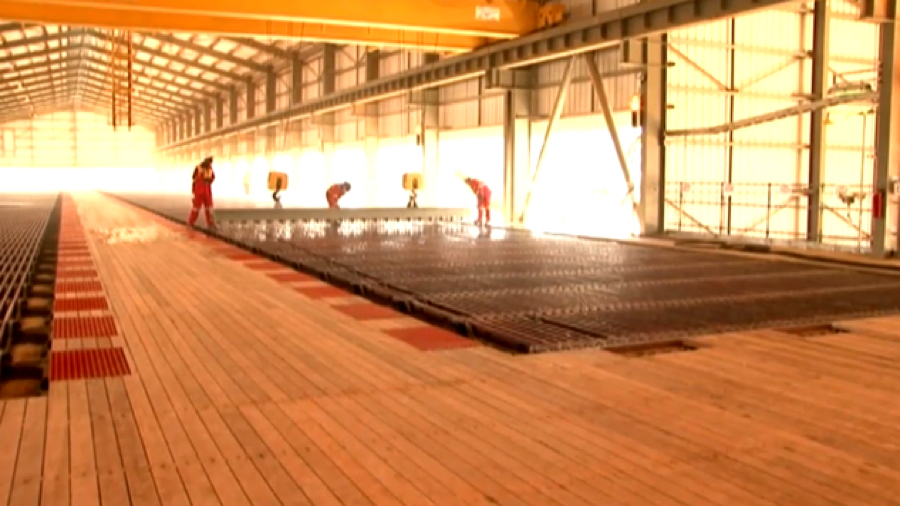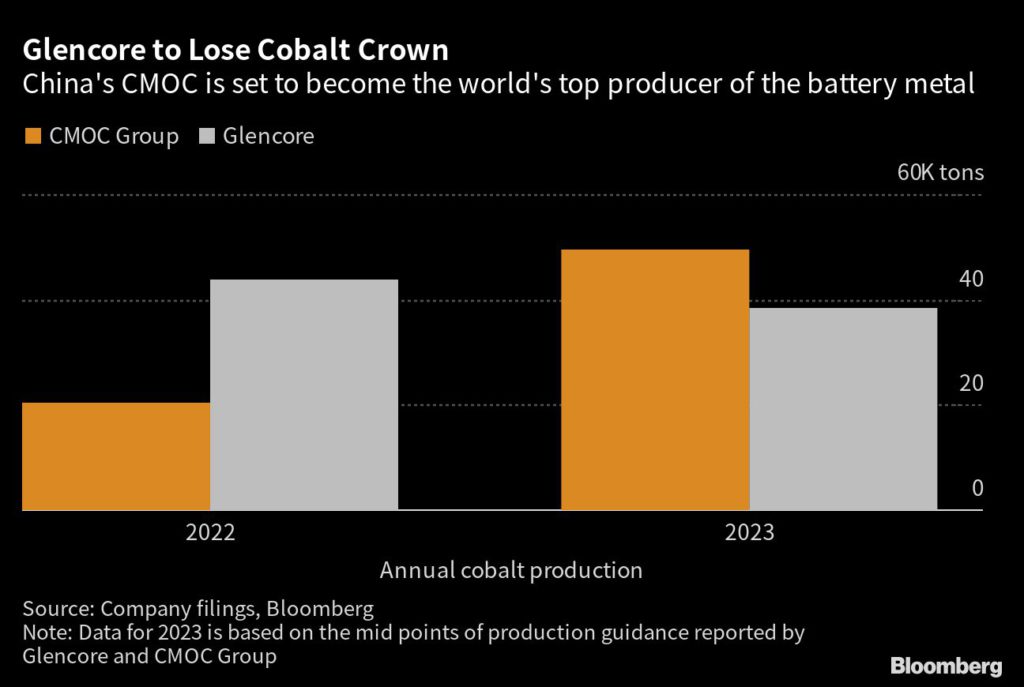Glencore set to lose crown as top cobalt miner to China’s CMOC

A Chinese miner is set to overtake Glencore Plc as the world’s top cobalt producer this year, as the rush for critical green-energy metals intensifies.
The challenger to Glencore’s dominant position is CMOC Group, which first became a major player in the cobalt market when it acquired the Tenke Fungurume mine in the Democratic Republic of Congo in 2016. The company aims to double production this year, as it brings another massive Congolese mine online in the second quarter. That will propel it past Glencore, company filings show.
CMOC has had a turbulent year in Congo, with a dispute over royalty payments halting exports from the Tenke mine since July. It’s kept the operation running, stockpiling copper and cobalt, and CMOC executives told investors on Monday that they’re confident of resolving the issue by the end of March, according to an emailed account of the call from Citigroup Inc.

Congo’s Finance Minister Nicolas Kazadi also said he’s hopeful a deal will be agreed “very soon,” in comments made at the Financial Times Commodities Global Summit in Switzerland. A resolution could remove a key source of uncertainty in the cobalt market, where the fate of the stockpiled metal is weighing on the outlook.
After spiking last year on the back of booming electric-vehicle sales, cobalt prices have crashed in recent months on a combination of slowing demand from the consumer electronics sector, rising output in Indonesia and worries over a surge in exports from Congo.
Read more: A $1.5 billion hoard of copper and cobalt is piling up in Congo
Throughout the dispute, CMOC has made rapid progress in developing its Kisanfu copper and cobalt mine, bucking the mining industry’s broader challenges with cost blowouts and delays. The $1.8 billion project began in March 2021, and will be put into operation in the second quarter, the company said in its annual report.
It will produce as much as 30,000 tons this year, putting it on course to overtake Tenke and Glencore’s Katanga as the world’s largest cobalt mine. Tenke produced 20,286 tons in 2022, while Katanga’s output was 25,500 tons.
While prices have plunged, the race to secure critical green-energy raw materials has put cobalt in the political spotlight. In December, US Secretary of State Antony Blinken signed a memorandum of understanding with the Congo and Zambia to explore ways to support their joint plan to develop an electric-vehicle value chain.
(By Mark Burton, with assistance from Thomas Biesheuvel)
{{ commodity.name }}
{{ post.title }}
{{ post.date }}




Comments